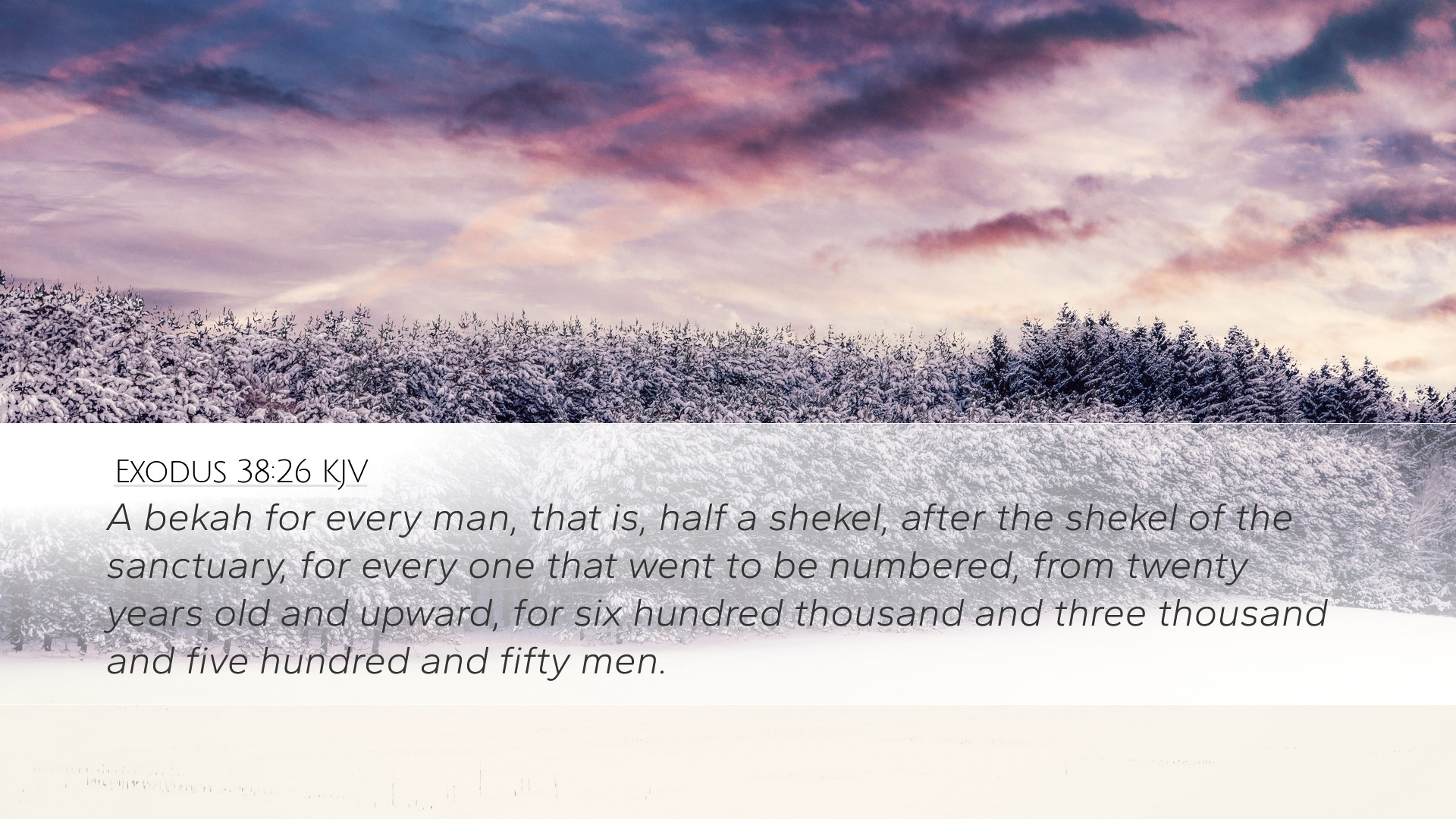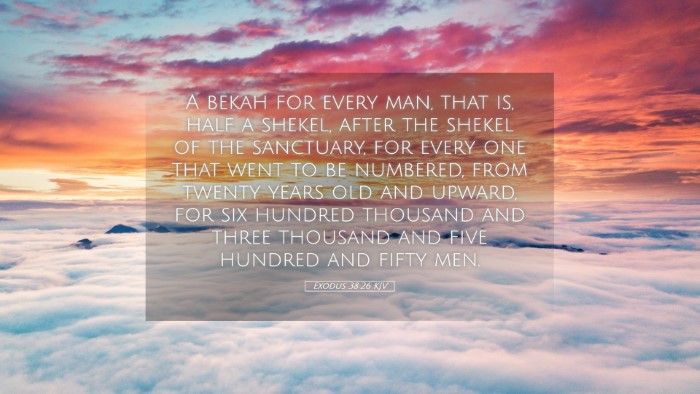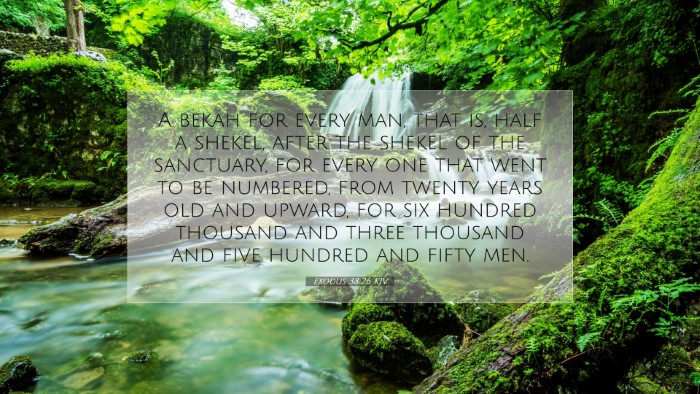Exodus 38:26 Commentary
Exodus 38:26 states:
"A bekah for every man, that is, half a shekel, according to the shekel of the sanctuary; a shekel is twenty gerahs: half shekel shall be the offering of the Lord."
Introduction
The verse presents a directive given to the Israelites regarding the taxation of every male above twenty years of age for the purposes of the Tabernacle's construction and maintenance. The significance and implications of this offering offer rich insights into the theology of giving, community, and the sacredness of worship.
Theological Significance of the Bekah
According to the commentaries of Matthew Henry, the term "bekah" represents a measure of value, specifically equating to half a shekel, which may reflect the concept that no one can claim full ownership over their resources. The communal offering fosters a sense of collective responsibility among the congregation, aligning individual contributions towards a greater purpose.
Community and Equality
Albert Barnes points out that the requirement of a fixed amount, rather than a percentage of income, implies equality among all men. It creates a level playing field, highlighting that every individual's contribution, however modest, is met with equal importance. This aspect emphasizes God’s view of value in diverse contributions and, in doing so, encourages a spirit of generosity among congregants.
Symbolism of the Half Shekel
Adam Clarke elaborates on the symbolic significance of the half shekel. The offering represented not only a monetary gift but also a token of atonement, tying it to the larger sacrificial system and giving a tangible way for Israelites to express commitment to their covenant with God. The half shekel serves as an acknowledgment of their need for atonement and the provision made for them by God.
The Role of the Sanctuary
The sanctuary is central to Israelite worship, and the half shekel contributes to its maintenance and function. As noted in the writings of Henry, this reflects the theological concept that the house of the Lord is worthy of care and respect; thus, contributing to its upkeep is both an honor and a duty.
Economic Aspect of Worship
Giving in the context of worship extends beyond mere obligation. Barnes emphasizes that the offering symbolizes the people's devotion to God and their recognition of His presence among them. This act of giving aids in the sustainment of communal worship, highlighting that financial contributions go hand-in-hand with spiritual investment.
Lessons for Today
The principles illustrated in Exodus 38:26 resonate in today's context. The structured approach to giving can encourage modern-day believers to reflect on how they contribute to their church communities
- Personal Responsibility: Every believer has a part to play in the community’s collective effort.
- Equality in Offering: Whether wealth or modest means, every contribution matters in God’s eyes.
- Tie Between Giving and Worship: Financial giving is an avenue for spiritual expression and commitment.
Conclusion
In conclusion, Exodus 38:26 encapsulates profound insights into the internal and external dynamics of sacrificial giving. By studying this verse, and the commentaries associated with it, pastors, students, theologians, and Bible scholars can appreciate not only the historical context but also the contemporary significance of a communal approach to worship and the sacred responsibility of contributing to the needs of the church.


